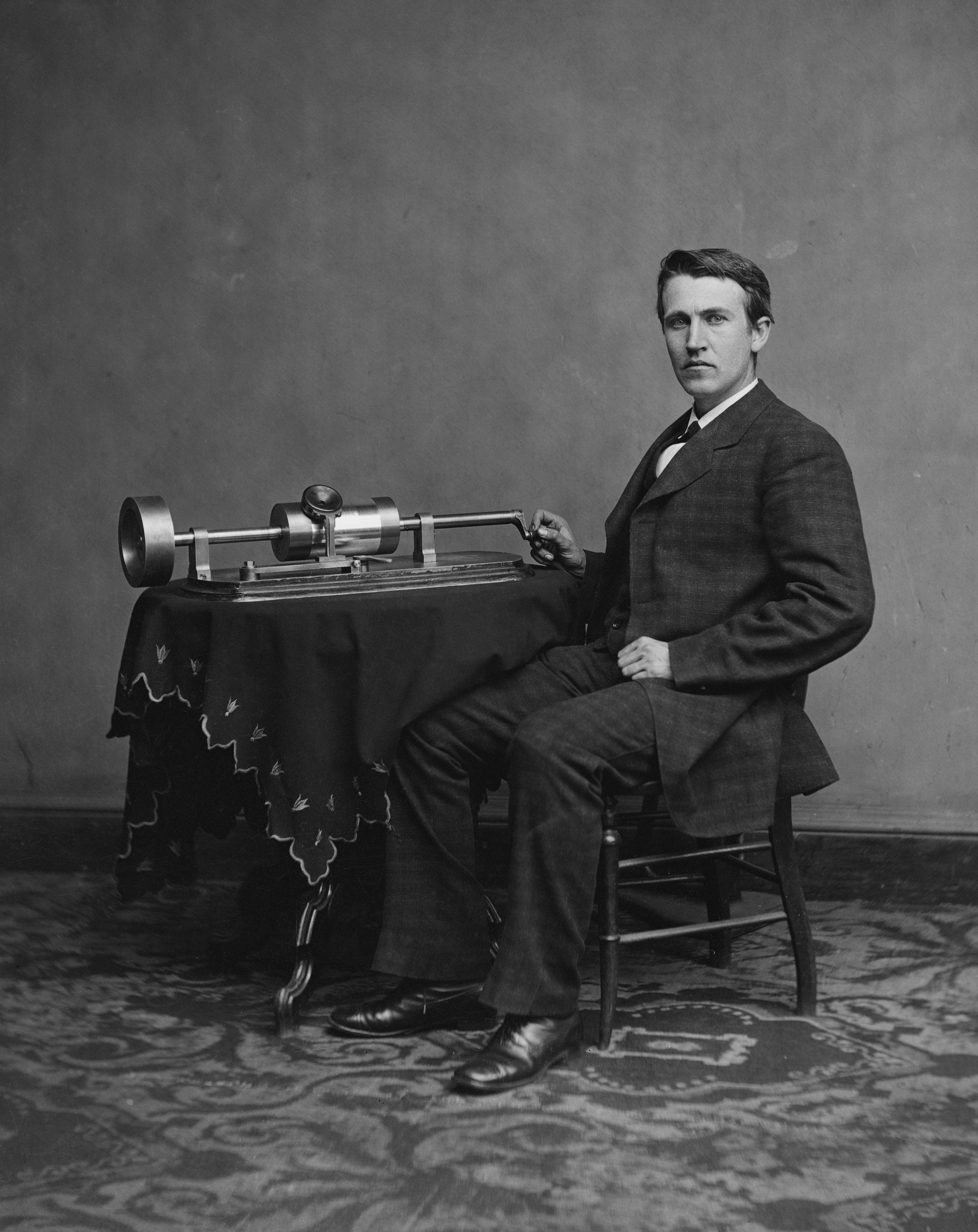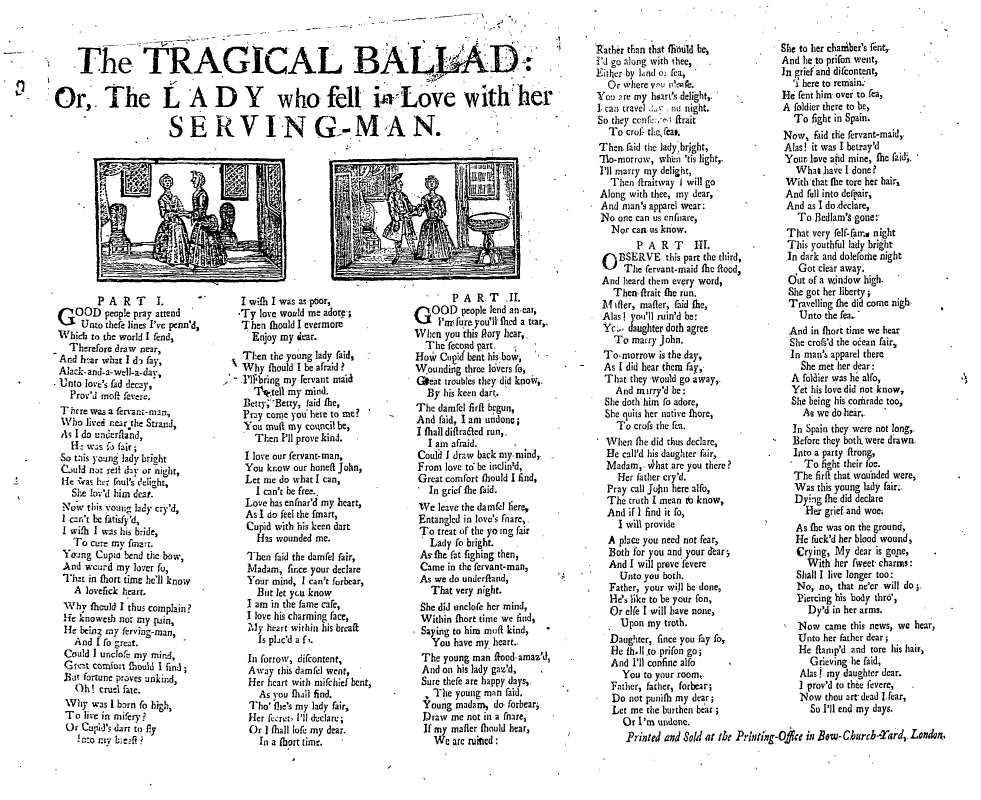|
Cailín Óg A Stór
Cailín Óg a Stór (Irish for "O Darling Young Girl") is a traditional Irish melody, originally accepted for publication in March 1582. It may be the source of Pistol's cryptic line in Henry V, '' Caleno custure me''. It is part of a broadside collection from 1584. The poem "The Croppy Boy" was set to this music, and it was later used for the tune of " Lord Franklin", which was the basis for the Bob Dylan song "Bob Dylan's Dream". The melody is also used for other Irish ballads including "McCafferty". The tune has been used for other songs including "A Sailor's Life"; a 1908 Percy Grainger phonograph recording of a man from Winchcombe, Gloucestershire, England can be heard on the British Library Sound Archive The British Library Sound Archive, formerly the British Institute of Recorded Sound; also known as the National Sound Archive (NSA), in London, England is among the largest collections of recorded sound in the world, including music, spoken word a ... website. References ... [...More Info...] [...Related Items...] OR: [Wikipedia] [Google] [Baidu] |
Irish Language
Irish ( Standard Irish: ), also known as Gaelic, is a Goidelic language of the Insular Celtic branch of the Celtic language family, which is a part of the Indo-European language family. Irish is indigenous to the island of Ireland and was the population's first language until the 19th century, when English gradually became dominant, particularly in the last decades of the century. Irish is still spoken as a first language in a small number of areas of certain counties such as Cork, Donegal, Galway, and Kerry, as well as smaller areas of counties Mayo, Meath, and Waterford. It is also spoken by a larger group of habitual but non-traditional speakers, mostly in urban areas where the majority are second-language speakers. Daily users in Ireland outside the education system number around 73,000 (1.5%), and the total number of persons (aged 3 and over) who claimed they could speak Irish in April 2016 was 1,761,420, representing 39.8% of respondents. For most of recorded ... [...More Info...] [...Related Items...] OR: [Wikipedia] [Google] [Baidu] |
Percy Grainger
Percy Aldridge Grainger (born George Percy Grainger; 8 July 188220 February 1961) was an Australian-born composer, arranger and pianist who lived in the United States from 1914 and became an American citizen in 1918. In the course of a long and innovative career he played a prominent role in the revival of interest in British folk music in the early years of the 20th century. Although much of his work was experimental and unusual, the piece with which he is most generally associated is his piano arrangement of the folk-dance tune " Country Gardens". Grainger left Australia at the age of 13 to attend the Hoch Conservatory in Frankfurt. Between 1901 and 1914 he was based in London, where he established himself first as a society pianist and later as a concert performer, composer and collector of original folk melodies. As his reputation grew he met many of the significant figures in European music, forming important friendships with Frederick Delius and Edvard Grieg. He became a ... [...More Info...] [...Related Items...] OR: [Wikipedia] [Google] [Baidu] |
16th-century Songs
The 16th century begins with the Julian year 1501 ( MDI) and ends with either the Julian or the Gregorian year 1600 ( MDC) (depending on the reckoning used; the Gregorian calendar introduced a lapse of 10 days in October 1582). The 16th century is regarded by historians as the century which saw the rise of Western civilization and the Islamic gunpowder empires. The Renaissance in Italy and Europe saw the emergence of important artists, authors and scientists, and led to the foundation of important subjects which include accounting and political science. Copernicus proposed the heliocentric universe, which was met with strong resistance, and Tycho Brahe refuted the theory of celestial spheres through observational measurement of the 1572 appearance of a Milky Way supernova. These events directly challenged the long-held notion of an immutable universe supported by Ptolemy and Aristotle, and led to major revolutions in astronomy and science. Galileo Galilei became a champion ... [...More Info...] [...Related Items...] OR: [Wikipedia] [Google] [Baidu] |
1582 Works
Year 158 ( CLVIII) was a common year starting on Saturday (link will display the full calendar) of the Julian calendar. At the time, it was known as the Year of the Consulship of Tertullus and Sacerdos (or, less frequently, year 911 ''Ab urbe condita''). The denomination 158 for this year has been used since the early medieval period, when the Anno Domini calendar era became the prevalent method in Europe for naming years. Events By place Roman Empire * The earliest dated use of Sol Invictus, in a dedication from Rome. * A revolt against Roman rule in Dacia is crushed. China * Change of era name from ''Yongshou'' to ''Yangxi'' of the Chinese Han Dynasty. Births *Gaius Caesonius Macer Rufinianus, Roman politician (d. 237) Deaths * Wang Yi, Chinese librarian and poet (d. AD 89 AD 89 (LXXXIX) was a common year starting on Thursday (link will display the full calendar) of the Julian calendar. At the time, it was known as the Year of the Consulship of Fulvus and ... [...More Info...] [...Related Items...] OR: [Wikipedia] [Google] [Baidu] |
British Library Sound Archive
The British Library Sound Archive, formerly the British Institute of Recorded Sound; also known as the National Sound Archive (NSA), in London, England is among the largest collections of recorded sound in the world, including music, spoken word and ambient recordings. It holds more than six million recordings, including over a million discs and 200,000 tapes. These include commercial record releases (chiefly from the UK), radio broadcasts (many from the BBC Sound Archive), and privately made recordings. History The history of the Sound Archive can be traced back to 1905, when it was first suggested that the British Museum should have a collection of audio recordings of poets and statesmen. The Gramophone Company started donating metal masters of audio recordings in 1906 (on the basis that records would wear out), with a number of donations being made up until 1933. These recordings included some by Nellie Melba, Adelina Patti, Caruso and Francesco Tamagno, and others of Lev ... [...More Info...] [...Related Items...] OR: [Wikipedia] [Google] [Baidu] |
England
England is a country that is part of the United Kingdom. It shares land borders with Wales to its west and Scotland to its north. The Irish Sea lies northwest and the Celtic Sea to the southwest. It is separated from continental Europe by the North Sea to the east and the English Channel to the south. The country covers five-eighths of the island of Great Britain, which lies in the North Atlantic, and includes over 100 smaller islands, such as the Isles of Scilly and the Isle of Wight. The area now called England was first inhabited by modern humans during the Upper Paleolithic period, but takes its name from the Angles, a Germanic tribe deriving its name from the Anglia peninsula, who settled during the 5th and 6th centuries. England became a unified state in the 10th century and has had a significant cultural and legal impact on the wider world since the Age of Discovery, which began during the 15th century. The English language, the Anglican Church, and Engli ... [...More Info...] [...Related Items...] OR: [Wikipedia] [Google] [Baidu] |
Gloucestershire
Gloucestershire ( abbreviated Glos) is a county in South West England. The county comprises part of the Cotswold Hills, part of the flat fertile valley of the River Severn and the entire Forest of Dean. The county town is the city of Gloucester and other principal towns and villages include Cheltenham, Cirencester, Kingswood, Bradley Stoke, Stroud, Thornbury, Yate, Tewkesbury, Bishop's Cleeve, Churchdown, Brockworth, Winchcombe, Dursley, Cam, Berkeley, Wotton-under-Edge, Tetbury, Moreton-in-Marsh, Fairford, Lechlade, Northleach, Stow-on-the-Wold, Chipping Campden, Bourton-on-the-Water, Stonehouse, Nailsworth, Minchinhampton, Painswick, Winterbourne, Frampton Cotterell, Coleford, Cinderford, Lydney and Rodborough and Cainscross that are within Stroud's urban area. Gloucestershire borders Herefordshire to the north-west, Worcestershire to the north, Warwickshire to the north-east, Oxfordshire to the east, Wiltshire to the south, Bristol and Somerset ... [...More Info...] [...Related Items...] OR: [Wikipedia] [Google] [Baidu] |
Winchcombe
Winchcombe () is a market town and civil parish in the Borough of Tewkesbury in the county of Gloucestershire, England, it is 6 miles north-east of Cheltenham. The population was recorded as 4,538 in the 2011 census and estimated at 5,347 in 2019. The town is located in the Cotswolds and has many features and buildings dating back to medieval times. History The Belas Knap Neolithic long barrow on Cleeve Hill above Winchcombe, dates from about 3000 BCE. In Anglo-Saxon times, Winchcombe was a major community in Mercia, favoured by King Coenwulf of Mercia, the others being Lichfield and Tamworth. In the 11th century, the town was briefly the county town of Winchcombeshire. The Anglo-Saxon St Kenelm, said to be a son of Coenwulf, is believed to be buried here. During the Anarchy of the 12th century, a motte-and-bailey castle was built in the early 1140s for Empress Matilda, by Roger Fitzmiles, 2nd Earl of Hereford, but its exact site is unknown. It has been suggested i ... [...More Info...] [...Related Items...] OR: [Wikipedia] [Google] [Baidu] |
Phonograph
A phonograph, in its later forms also called a gramophone (as a trademark since 1887, as a generic name in the UK since 1910) or since the 1940s called a record player, or more recently a turntable, is a device for the mechanical and analogue recording and reproduction of sound. The sound vibration waveforms are recorded as corresponding physical deviations of a spiral groove engraved, etched, incised, or impressed into the surface of a rotating cylinder or disc, called a "record". To recreate the sound, the surface is similarly rotated while a playback stylus traces the groove and is therefore vibrated by it, very faintly reproducing the recorded sound. In early acoustic phonographs, the stylus vibrated a diaphragm which produced sound waves which were coupled to the open air through a flaring horn, or directly to the listener's ears through stethoscope-type earphones. The phonograph was invented in 1877 by Thomas Edison. Alexander Graham Bell's Volta Laboratory made s ... [...More Info...] [...Related Items...] OR: [Wikipedia] [Google] [Baidu] |
A Sailor's Life
"A Sailor’s Life" (Roud 273; Laws K12) is an English language folk song which describes the attempt of a young woman to find her lover, a sailor. Eventually she hears that he has drowned and mourns him. History The song was printed in eighteenth-century broadsides and collected by W. Percy Merrick in 1899 from Henry Hills of Lodsworth, Sussex. Countless recordings have been made of the song, including one version sung in 1908 by A. Lane of Winchcombe, Gloucestershire, England, recorded on phonograph by Percy Grainger; this recording can be heard on the British Library Sound Archive website. It was published in the ''Penguin Book of English Folk Songs'' and recorded in 1960 by A. L. Lloyd for the album ''A Selection from the Penguin Book of English Folk Songs''. It was subsequently recorded by Judy Collins on her album '' A Maid of Constant Sorrow'' in 1961 and Martin Carthy for his ''Second Album'' in 1966 with his then playing partner violinist Dave Swarbrick. It is probably ... [...More Info...] [...Related Items...] OR: [Wikipedia] [Google] [Baidu] |
Broadside (music)
A broadside (also known as a broadsheet) is a single sheet of inexpensive paper printed on one side, often with a ballad, rhyme, news and sometimes with woodcut illustrations. They were one of the most common forms of printed material between the sixteenth and nineteenth centuries, particularly in Britain, Ireland and North America because they are easy to produce and are often associated with one of the most important forms of traditional music from these countries, the ballad. Development of broadsides Ballads developed out of minstrelsy from the fourteenth and fifteenth century. These were narrative poems that had combined with French courtly romances and Germanic legends that were popular at the King’s court, as well as in the halls of lords of the realm. By the seventeenth century, minstrelsy had evolved into ballads whose authors wrote on a variety of topics. The authors could then have their ballads printed and distributed. Printers used a single piece of paper known as ... [...More Info...] [...Related Items...] OR: [Wikipedia] [Google] [Baidu] |
McCafferty
"McCafferty" is an Irish ballad which originated as a street-ballad about British Army Private Patrick McCaffrey, executed in 1862 for the "fragging" of two officers. It is particularly popular in Ireland, where Pvt. McCaffrey came from, and was recorded by The Dubliners. In the British Army it was allegedly a court martial offence to sing the song, but that is a legend. The song is set to the traditional Irish tune "Cailín Óg a Stór", which is the same melody used for "The Croppy Boy". Story Patrick McCaffery was born in County Kildare, Ireland in October 1842. Deserted by his father while young, Mrs. McCaffery sent him to England to stay with a friend, Mrs. Murphy of Mossley near Manchester, where, at the age of 12, he started work in a local mill, later moving to Stalybridge. On 10 October 1860, aged 18, he took the Queen's shilling and enlisted in the 32nd (Cornwall) Regiment of Foot (Light Infantry). After enlistment he was sent to Fulwood Barracks to train with 11 ... [...More Info...] [...Related Items...] OR: [Wikipedia] [Google] [Baidu] |







